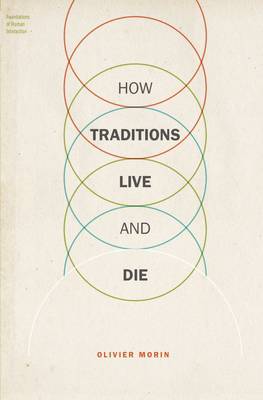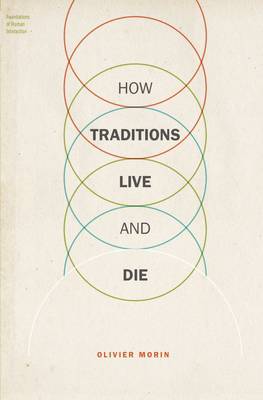
En raison d'une grêve chez bpost, votre commande pourrait être retardée. Vous avez besoin d’un livre rapidement ? Nos magasins vous accueillent à bras ouverts !
- Retrait gratuit dans votre magasin Club
- 7.000.000 titres dans notre catalogue
- Payer en toute sécurité
- Toujours un magasin près de chez vous
En raison de la grêve chez bpost, votre commande pourrait être retardée. Vous avez besoin d’un livre rapidement ? Nos magasins vous accueillent à bras ouverts !
- Retrait gratuit dans votre magasin Club
- 7.000.0000 titres dans notre catalogue
- Payer en toute sécurité
- Toujours un magasin près de chez vous
77,95 €
+ 155 points
Description
Of all the things we do and say, most will never be repeated or reproduced. Once in a while, however, an idea or a practice generates a chain of transmission that covers more distance through space and time than any individual person ever could. What makes such transmission chains possible? For two centuries, the dominant view (from psychology to anthropology) was that humans owe their cultural prosperity to their powers of imitation. In this view, modern cultures exist because the people who carry them are gifted at remembering, storing and reproducing information. How Traditions Live and Die proposes an alternative to this standard view. What makes traditions live is not a general-purpose imitation capacity. Cultural transmission is partial, selective, often unfaithful. Some traditions live on in spite of this, because they tap into widespread and basic cognitive preferences. These attractive traditions spread, not by being better retained or more accurately transferred, but because they are transmitted over and over. This theory is used to shed light on various puzzles of cultural change (from the distribution of bird songs to the staying power of children's rhymes) and to explain the special relation that links the human species to its cultures. Morin combines recent work in cognitive anthropology with new advances in quantitative cultural history, to map and predict the diffusion of traditions. This book is both an introduction and an accessible alternative to contemporary theories of cultural evolution.
Spécifications
Parties prenantes
- Auteur(s) :
- Editeur:
Contenu
- Nombre de pages :
- 320
- Langue:
- Anglais
- Collection :
Caractéristiques
- EAN:
- 9780190210502
- Date de parution :
- 30-11-15
- Format:
- Livre broché
- Format numérique:
- Trade paperback (VS)
- Dimensions :
- 155 mm x 231 mm
- Poids :
- 408 g

Les avis
Nous publions uniquement les avis qui respectent les conditions requises. Consultez nos conditions pour les avis.






